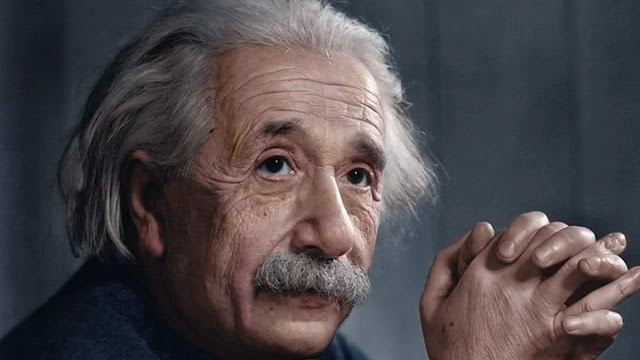Albert Einstein – The Mind That Reshaped Physics

Albert Einstein is universally regarded as one of the greatest scientific minds in history. His revolutionary theories not only reshaped modern physics but also transformed the way humanity understands space, time, energy, and matter. A brilliant thinker, a humanitarian, and a symbol of intellectual genius, Einstein's impact extends far beyond science, leaving an indelible mark on philosophy, politics, and culture.
Early Life and Education
Albert Einstein was born on March 14, 1879, in Ulm, in the Kingdom of Württemberg, Germany. His father, Hermann Einstein, was an engineer and salesman, while his mother, Pauline Koch, was a homemaker with a deep appreciation for music. As a child, Einstein was curious and imaginative, although he spoke slowly and had trouble with traditional schooling methods. However, he showed an early aptitude for mathematics and physics, teaching himself algebra and Euclidean geometry by age 12.
In 1894, the Einstein family moved to Italy, and Albert eventually enrolled at the Swiss Federal Polytechnic in Zurich. He graduated in 1900 with a teaching diploma in physics and mathematics. Despite his talent, Einstein initially struggled to find a teaching post and instead took a job at the Swiss Patent Office in Bern.
The Miracle Year – Annus Mirabilis (1905)
While working at the patent office, Einstein continued his scientific research during his spare time. In 1905, often referred to as his "Annus Mirabilis" or "Miracle Year," Einstein published four groundbreaking papers that would revolutionize physics. These included:
The photoelectric effect, which explained how light behaves like particles (later earning him the Nobel Prize in 1921)
Brownian motion, which provided empirical evidence for the existence of atoms
Special relativity, which introduced the concept that time and space are relative to the observer
The famous equation E=mc^2, which demonstrated the equivalence of mass and energy
These contributions established Einstein as a rising star in the scientific community.
General Theory of Relativity
In 1915, Einstein completed his General Theory of Relativity, expanding on his earlier work to include gravity. He proposed that gravity is not a force but rather the warping of spacetime by massive objects. This theory predicted phenomena such as the bending of light around stars and the expansion of the universe, both of which were later confirmed by experiments and observations.
Einstein's work gained international fame in 1919 when a solar eclipse provided the first experimental proof of general relativity. He became a global celebrity almost overnight, known not just for his intellect but also for his wild hair, warm personality, and commitment to peace and humanitarian causes.
Life in the United States
In the 1930s, as Adolf Hitler rose to power in Germany, Einstein, who was Jewish and an outspoken critic of the Nazi regime, emigrated to the United States. He accepted a position at the Institute for Advanced Study in Princeton, New Jersey, where he remained for the rest of his career.
While in the U.S., Einstein continued his scientific work but also became deeply involved in social and political causes. He was a strong advocate for civil rights, nuclear disarmament, and democratic ideals. In 1939, he famously signed a letter to President Franklin D. Roosevelt warning that Nazi Germany might be developing an atomic bomb—a letter that helped initiate the U.S. Manhattan Project. Despite this, Einstein later expressed regret about his role in the development of nuclear weapons.
Personal Life and Legacy
Einstein was known for his eccentric and modest lifestyle. He enjoyed playing the violin, sailing, and walking. His personal life included two marriages and several complex relationships, including a strained connection with his children.
He passed away on April 18, 1955, at the age of 76. His brain was preserved for scientific study, reflecting the enduring fascination with his intellect.
Albert Einstein's legacy is vast. Beyond his scientific contributions, he is remembered as a symbol of intellectual curiosity, moral courage, and humanistic values. His name has become synonymous with "genius," and his life continues to inspire scientists, students, and thinkers around the world.
Conclusion
Albert Einstein reshaped our understanding of the universe and redefined the boundaries of human knowledge. His groundbreaking theories transformed physics, while his humanitarian efforts demonstrated a deep concern for the future of humankind. In a world that often separates science from society, Einstein stood as a bridge—proving that great minds can also have great hearts.



Comments
Post a Comment